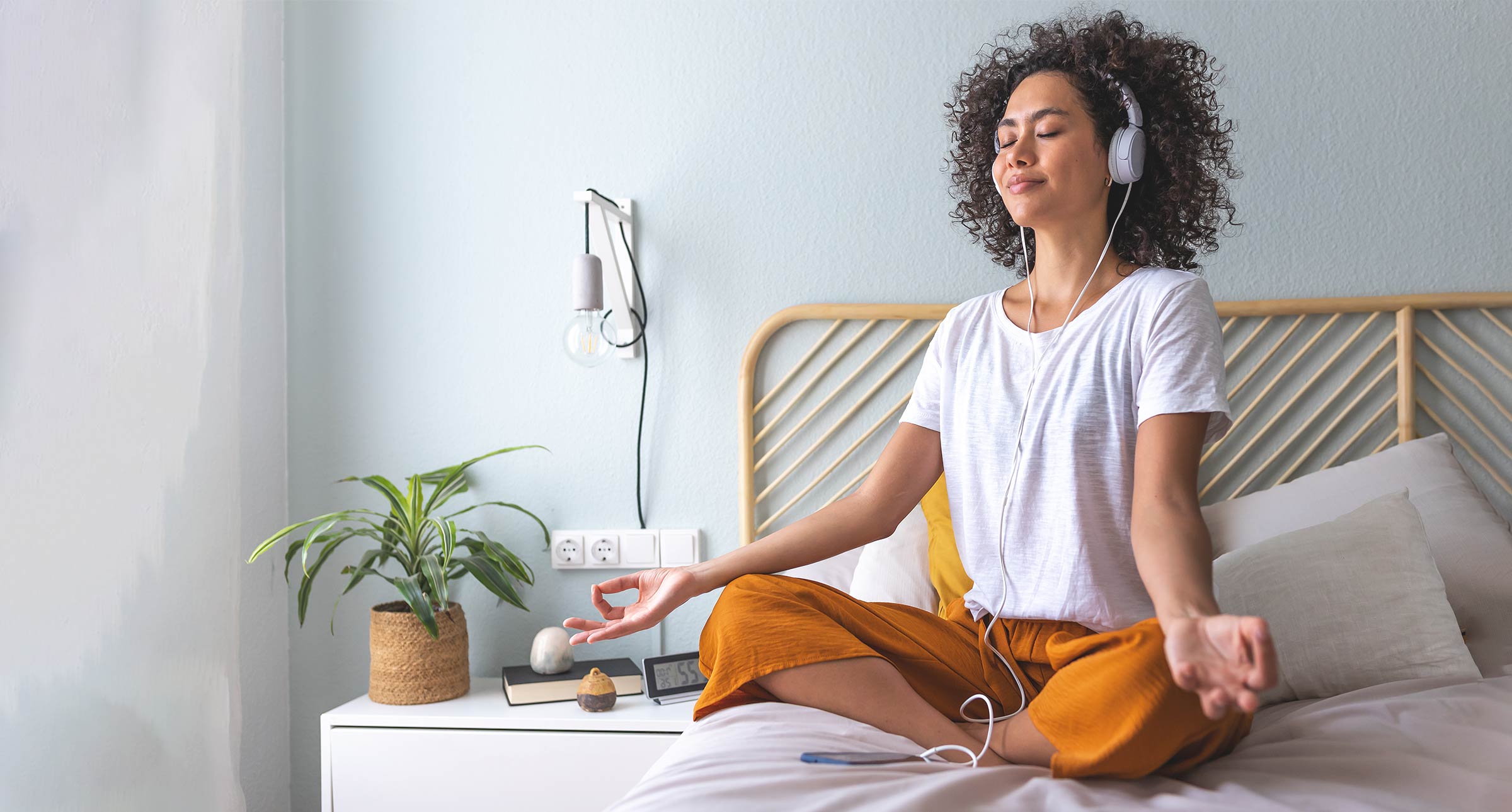There are quiet costs to curating our lives for others online. In a world where authenticity is encouraged, the reality is that authentic self-expression is difficult. But there’s also freedom in showing up as your true self, both online and off.
Navigating the Pressure of Perfection: the Hidden Costs of Inauthenticity
Lately, I’ve noticed a positive shift online: more and more social media influencers are talking openly about their mental health. It’s inspiring and encouraging to see that this once-taboo topic is being brought into the spotlight, helping to break down the stigma surrounding mental health challenges. When people with large platforms share their struggles, it opens the door for others to feel safe doing the same. That is so important.
But there’s something else I’ve noticed, too: more and more social media influencers are talking openly about their mental health. I can’t help but wonder if these same influencers are actually feeling increasingly more drained, disconnected, or just not themselves in response to what I imagine is an immense pressure to “show up” as a version of themselves they think their followers want to see—rather than as their authentic selves.
Not the Full Picture
When we are constantly bombarded online by curated images and videos, it’s easy to forget that these snapshots of people’s lives aren’t the full picture. Behind the perfection of well-lit selfies and polished posts, there is also anxiety, stress, exhaustion, moments of sadness, frustration, and overwhelm—the quieter, messier parts of being human that don’t often make it into the frame.
Do You Feel the Pressure to Curate?
Do you ever find yourself feeling less-than because you’re comparing your “bloopers” to someone else’s highlight reel? Have you ever posted something that didn’t feel like you—maybe a smiling family photo right after an argument, a vacation selfie that left out the stress that it took to get there, a group photo from a “perfect” dinner party where you actually felt disconnected or lonely. Have you felt that pull to post something polished, something that made life look a little more together than it really felt?
The pressure to curate, to show only your best, happiest, or most successful version of yourself is exhausting. Even without millions of followers, even in just your day-to-day interactions, the striving to maintain an idealized image can quietly erode your confidence, sense of self-worth, and emotional well being. Constantly filtering your reality—editing not just what you share, but how you show up—comes at a cost. It can leave you feeling disconnected, emotionally exhausted, and stuck in a version of yourself that doesn’t quite fit. Over time, that dissonance can build into burnout, feelings of inadequacy, or a lingering sense of uncertainty about who you are underneath it all.
The Power of Authenticity
Take a moment and check in with yourself: what would it be like to let go of the pressure to perform or appear perfect? What would it be like to stop curating and allow yourself to show up just as you are, flaws and all?
If that idea feels deeply uncomfortable or vulnerable—you are not alone. Full disclosure: I was encouraged to include more real-life examples in this post… and I will admit that it felt exposing. (Who might read this? How might it change what they think of me?) So if you are squirming at the idea of being vulnerable, I am right there with you.
But with authenticity, comes freedom. When you stop editing yourself to fit a mould and start honouring who you truly are, you create space for deeper connection, greater self-acceptance, and more meaningful experiences. You may even find that the people who matter most are drawn to you because of your realness, not in spite of it. And perhaps most importantly, you return home to yourself—not the version shaped to please others, but the one rooted in your own truth.
Finding Your Authentic Self
Start by carving out some time to get to know yourself more deeply. Ask yourself: When do you feel most like yourself? Are there moments when you catch yourself performing, and if so, what are you trying to protect or prove? And what would it feel like to let that go?
I’ve noticed that when I am feeling low, I am more vulnerable to the impacts of other people’s highlight reels. I am more likely to compare, wondering whether I am doing enough, having enough fun, or living a life that looks exciting or meaningful. In those moments, I notice feeling more internal pressure to prove something—even if it’s just to myself. It’s like I momentarily lose touch with what actually matters to me.
And then there are moments when I feel most grounded, like when I am at my CrossFit gym. I am surrounded by some incredible athletes—strong, fast, fit—and even if I wanted to present like I could keep up: I just can’t. There’s something oddly freeing about being in a space where I can’t pretend; where my only option is to show up and try. In those moments, I notice all those parts of me that want to care what others think get oddly quiet; because if I let them join me—I probably wouldn’t show up at all.
The more we pay attention to these kinds of moments, the easier it becomes to recognize when we are being authentic and when we are not. And from that awareness, we can start making different choices.
Authenticity is Not All or Nothing
It’s also important to know that authenticity doesn’t have to be all or nothing. You can consciously choose when and where to be vulnerable. It’s not about sharing everything all the time, but about tuning into what feels true for you in a given moment. Sometimes, it’s best to allow yourself to be real in smaller ways; like admitting when you’re struggling, or giving yourself grace to be imperfect.
Take meeting someone new for example: I am probably not going to lead with my childhood insecurities or the fears I carry around about being a “good enough” mother or psychologist. Before sharing something like that, I’ll test the waters first—to see if there is space for this level of honesty and connection. And if there’s not? I’ll stick to talking about the latest TV show I binged or how the Blue Jays are doing this year.
Sometimes, a small dose of vulnerability is enough to signal openness and see if it’s safe to go deeper (like instead of saying the usual “I’m good!” admitting, “Honestly, I’ve had a tough week,” when someone asks you how you are). Over time, as trust builds, authenticity often grows alongside it. It becomes easier to show up more fully without having to hide or edit the parts of yourself that matter most.
Be Genuine with Others
Another way to ease the pressure is to shift focus from yourself to others. How might you show up for someone else in a way that feels genuine? How might you engage in relationships with curiosity and care, rather than performing? When you take the focus off of perfection and turn it toward connection and giving, it often feels more natural to be authentic.
I was reminded of this recently during an evening with a group of friends—other moms with kids who are all around the same age as my own. I am not sure what the different ingredients were that evening (a bit of exhaustion maybe, or just the right mix of trust and timing), but we all ended up sharing the harder stuff: the frustrations, the fears, the parts of parenting and partnership that can feel heavy and messy (and that certainly don’t make it to Instagram). And while we weren’t all facing the same challenges, there was this overwhelming sense of being heard, and of seeing ourselves in one another’s honesty. It was a powerful reminder of how authenticity often invites more authenticity and that dropping the facade allows for deeper connection.
You Don’t Have to Go It Alone
If this pressure has been affecting your mental health, it can also be helpful to talk to someone about it. A therapist can help you explore these feelings and work towards a more authentic, fulfilling life. And no, I am not suggesting you throw your phone in a lake and swear off Instagram or TikTok forever. I, too, find myself deep in a scroll at the end (or middle…) of a long day.
What I am suggesting is something quieter, but maybe even more powerful: learning how to show up in a way that feels honest—first to yourself, and then to the people around you. Not perfectly. Not all at once. Just a little more real, rather than “reel.”
If you’re interested in exploring how therapy and Transforming Emotions can help you find your authentic self, reach out for our free consultation. (And if you’re feeling really brave, ask about our Taming Your Inner Critic group, where we create space for people to show up truly as their authentic selves!)









